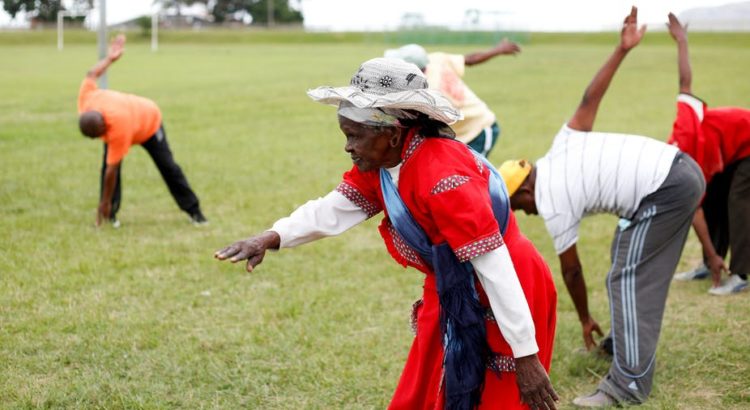África/Diciembre del 2017/https://theconversation.com
Change, often rapid and disorienting, is today’s norm. Even things our grandparents took for granted – manual typewriters, telegrams, smelling salts, corsets – have disappeared into antique shops and museums. We change jobs and even careers many times in one lifetime. We travel more. It seems like we adapt to new technologies almost weekly.
What hasn’t changed is that human beings need to learn so they can adapt and thrive in new circumstances. Is this possible for older people? It’s common knowledge that children are voracious learners but the famous cliche suggests that you can’t teach an old dog new tricks. This simply isn’t true.
As research conducted by my colleagues and I has shown, learning is a lifelong process. It’s also life-wide: we learn in all kinds of situations besides schools and colleges – in our families, workplaces, communities and through leisure activities. And it’s life-deep: it’s about emotions, morality, cultural and spiritual development, not just the intellect.
Here’s what you need to know to continue on your own lifelong learning process, and to encourage others around you to keep learning.
What older people have going for them
Ageing brings a slight deterioration in functions like short-term memory. But it has the advantage of accumulated experience. This means you know what you want to learn and how you want to apply it, and can link it to experience and concepts you’ve already acquired. Children at school typically learn a prescribed curriculum for future application. Adults tend to choose their learning and want it to count here and now.
Learning as an adult is not easy. You have to admit what you don’t know. Sometimes past learning experiences have been negative and associated with feelings of fear and failure. And adults have multiple responsibilities: work, family, social involvements and ageing parents, to name a few. Learning means negotiating these commitments and your own feelings. When you decide to embark on new studies, it’s important to let those around you know; explain how it will change things and enlist their support.
It’s also good to learn with others so that you can share the challenges and triumphs. Isolation can drive people away from learning at any stageof their lives. Study groups and learning partners, whether online, face-to-face or both, can be a great way of deepening and sustaining learning.
What and where
But what, and where, should you study? Firstly, it’s important to realise that not all, or even most, learning is formal. There’s an enormous modern emphasis on educational institutions, which for the masses is generally only a few hundred years old. And so the ways that humans have always learnt are often taken for granted.
We often learn the most important things informally from others and from experience: how to parent, how to get on with our neighbours, how to surf the Internet, where to find a job; and, perhaps most importantly, how to direct our own learning. Developing social capital – networks of friends, mentors, advisers, instructors – is as important for learning as it’s ever been.
These networks also allow us to connect with people whose voices we don’t usually hear; that helps us to avoid ghettoising our own minds and opens up new opportunities for thought and action.
Local organisations such as churches, mosques and temples often offer learning opportunities. NGOs as diverse as the World Wildlife Fund and Alcoholics Anonymous provide both face-to-face and eLearning opportunities.
In South Africa, community-based organisations such as stokvels – financial cooperatives – can be a great way to learn about money and saving. Keeping the country’s own radical tradition alive, Popular Education South Africa is a catalytic project that “seeks to inspire alternative forms of education provision that benefit working class and poor people”.
The government system of Community Learning Centres, linked to a Community College in each province, offers adult basic education and an alternative route to writing the National Senior Certificate. This is the final school-leaving exam (“matric”) that can equip you to enter tertiary institutions. Although these centres are of uneven quality, many do an outstanding job under difficult circumstances.
Navigating the Internet
The Internet offers a flood of learning opportunities. But how do you negotiate the deluge of options and pathways? It is important to check out the credentials of the websites you use because search engines don’t discriminate. Look out for websites that are linked to universities and research institutes. These and other credible online sources abound.
Though Wikipedia often gets a bad rap, it’s a vast public resource of information on almost every conceivable topic and a fascinating human invention. It’s a good spot to supplement your learning or answer quick queries.
TED Talks are devoted to “ideas worth spreading”, usually in the form of short powerful talks. You can learn anything from how to spot a liar to how to land on a comet. Each talk also offers access to a transcript, a reading list for more sources and an option for posting your own comments and joining the debate.
Learning as never before
It doesn’t matter whether your learning preferences are formal or informal; institutional or self-directed; online, face-to-face or blended.
We live in a learning world as never before, and the quality of our learning as a species is likely to determine our future. So don’t let cliches about old dogs hold you back: keep learning.
Fuente:https://theconversation.com/cant-teach-old-dogs-new-tricks-nonsense-tips-for-learning-later-in-life-85776
Fuente Imagen:https://lh3.googleusercontent.com/As_XL52yBXy4AbqObb1PiJHxQFydtT-eJnO43KInTrAJpmoLAI-A-hHr7lNp2KFlqQBiSg=s128







 Users Today : 69
Users Today : 69 Total Users : 35460200
Total Users : 35460200 Views Today : 98
Views Today : 98 Total views : 3418881
Total views : 3418881